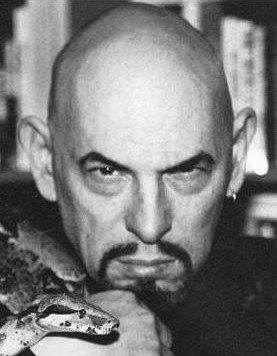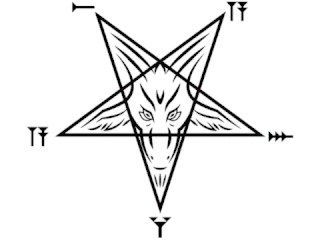Philosophy and theology
This section may need to be rewritten to comply with Wikipedia's quality standards.(February 2016) |
A central focus of Raschke’s work has been on postmodern religious thought and postmodernism. Raschke has been credited with being "one of the first to register the importance of Derrida's work for postmodern philosophies of religion ." [7]
Early work
According to the 2003 The Encyclopedia of Postmodernism, his “work has sought to expose a conceptual tangle in modernity’s approach to language, religion, and the body." [8] Raschke launched this project in the 1970s with the publication of an article in The Harvard Theological Review entitled “Meaning and Saying in Religion: Beyond Language Games,” in which he “argues that the failure of Anglo-American philosophy to adequately account for religious language reveals a deeper failure to account for the process of meaning-formation at the heart of language itself.” [8] His first major book, The Alchemy of the Word: Language and the End of Theology (1979), which was republished in 2000 as The End of Theology, lays out this agenda in detail with reliance in particular on the philosophy of the later Martin Heidegger. Fire and Roses: Postmodernity and the Thought of the Body (1996) explores these interconnections by seeking to “reconcile erotic and tragic discourses through the thought of the Word made flesh.” [8] An earlier work, entitled Theological Thinking: An In-Quiry (1988), investigates the interconnections between the languages of religion and science.
Turn of the millennium
After the turn of the millennium, Raschke turned his attention to the impact of postmodernism on Christian evangelical thought. His book, The Next Reformation: Why Evangelicals Must Embrace Postmodernity, explained how postmodern philosophy might transform present day evangelical theology, comparing it to Reformation thought, in particular Martin Luther’s key doctrines of sola fide (“by faith alone”) and sola Scriptura (“according to Scripture alone"). He writes in this book that “the postmodernist revolution in philosophy…has tendered an environment where the Christian gospel can at last be disentangled from the centuries-long gnarl of scientism, rationalism, secularism, humanism, and skepticism.” [9] Reviewing the book, Brian C. Smith notes in Library Journal that Raschke challenges the conventional evangelical view of "postmodernism" and "exudes an embracing and accepting spirit toward it." [10] A later book, entitled GloboChrist, published as part of a general series by Baker Academic Books, argued that the theory of the “rhizome,” first advanced by twentieth century French philosophers Gilles Deleuze and Felix Guattari, can be used to model the future of the Christian church in the new era of globalization. In an interview with the Evangelical Philosophical Society in 2009, Raschke explains he borrowed this term because “globalization is an ongoing, simultaneous transformation of nations, cultures, and religious outlooks and practices everywhere on the planet which they term ‘de-territorialization.’” [11] Commenting on GloboChrist scholar Richard Haney criticizes the book for its "breezy terminology", but concludes the book "will challenge Christians to think missionally and philosophically at the same time." [12] In his contribution among three authors to the volume Faith and Reason: Three Views, Raschke has argued that the gospel represented a departure from Greek and Enlightenment philosophies, and that faith and reason are "in tension" with each other. [13] Finally, Raschke has sought to introduce the essential concepts of critical theory to an evangelical audience in his book Critical Theology: Introducing an Agenda for an Age of Global Crisis. Danish reviewer Michael Raubach writes: "Carl Raschke has spent his entire career at the intersection of theology, social theory, political philosophy, and the hurly-burly of practiced American religion, and in his 75th year he remains as provocative and insightful as ever. His recent primer, Critical Theology, is a welcome handbook for those with philosophical backgrounds seeking to ground their study of the Frankfurt school with something like Jürgen Moltmann’s liberation theology, or for those of a theological bent trying to grapple with the dense social critiques of a continental philosopher like Slavoj Žižek." [14]
The Postmodern Reformation is a movement presently taking place throughout Western culture in which Christianity is experiencing a dramatic cultural shift away from institutionally centralized Christian practice closely related to primary Christendom values which have undergirded Roman Catholic, Orthodox, and Protestant culture since the 4th century. The movement parallels a number of other characteristic aspects of postmodernity including the adoption of primary extrainstitutional loyalties, a decentralized philosophy of cultural influence emphasizing authentic relationships, personal opportunity and responsibility for global and local contexts, and the localization of lifestyle. It also emphasizes a return to the values of 1st century Christian lifestyle using the tools of 21st century living.
Raschke has also written on the general theory of religion. His book,The Revolution in Religious Theory: Toward A Semiotics of the Event, lays out how postmodern philosophy has impacted and reshaped both classical and contemporary paradigms of how we understand what is meant by the “religious.” In an interview with David Hale, Raschke criticizes many scholars of religion, particularly in regard to "cults", for approaching their subject as a "pseudo-phenomenology" that "does not seek to probe, or dialectically reflect, beyond the bare given." [15] In reviewing the book, McGill University scholar Nathan Strunk writes that Raschke criticizes the history of religious studies as colonializing with a tendency toward "Aryanization", and thus "readers should not be surprised if some areas they consider sacred are tread over lightly." [16]
Political theology since 2015
Since 2015 Raschke's work has focused mainly on political thought and political theology. His book Force of God: Political Theology and the Crisis of Liberal Democracy, leverages the philosophies of Michel Foucault and Friedrich Nietzsche to analyze from what he terms a “genealogical” standpoint the ongoing global economic crisis and the dysfunctions of democracy. In a review in the Journal of Religion Samuel Hayim Brody writes that "Force of God is ostensibly an entry in the genre of critical Schmittianism", but that "it also works on several other levels: as an extended exegesis and application of Nietzsche; as a survey of concepts of 'force' in modern Continental philosophy (as Kraft in Hegel and Schelling, as Gewalt in Schelling and Benjamin, as Macht in Nietzsche and force/pouvoir in his French interpreters); and as an argument for the continuing relevance of the Western philosophical canon to contemporary problems.". [17] New Zealand scholar Michael Grimshaw writing in Syndicate, an online academic forum of major new books in a variety of fields, states that in Force of God "the crisis in liberal democracy is convincingly linked as yet another expression and result of Nietzsche’s death of god." He asks "if Force of God is a prophetical work in being the first political theology of the Trump interregnum; a political theology written before the rise of Trump but existing as both handbook to understanding the crisis in liberal democracy that led to Trump and a manifesto of how to undertake a political theology of resistance?" [18]
His book Neoliberalism and Political Theology: From Kant to Identity Politics is a comprehensive analysis of the contemporary neoliberal world order and devotes specific attention to what political theorist Nancy Fraser terms "progressive neoliberalism." Raschke argues that neoliberalism, which is presided over by a new ruling class - the "knowledge class" - that has replaced the nineteenth century captains of industry, "is not so much an economic or a political formation as it is a value configuration against which much of the world is now in open revolt." [19] What makes Raschke's argument unique, according to reviewer Michael Behrent, is the way he ties neoliberalism to progressive politics. According to Behrent, "Raschke shows how Fraser’s insights were prefigured by Foucault’s claim that liberalism originates in pastoral power—that is, a deterritorialized, shepherd-like authority legitimized by its concern for a flock’s well-being—and by Brown’s insight that the neoliberal idea of the free market is tied to a distorted sense of civic duty, which she dubs 'sacrificial citizenship.'". [20] University of Bonn philosopher Kieryn Wurts observes that "Raschke’s work...is intended to hold up a mirror to us and to make clear through the genealogical method that we are the neoliberals. He does this through a sophisticated Marxist analysis of labor alienation, put rather simplistically, the educated classes if somewhat fatally failed to develop class consciousness." [21]
Commenting on the 2020 George Floyd protests Raschke, drawing on Fraser and Louis Althusser, asserted that
In a word, “oppression” remains invisible because it is coded into the “common sense” of any social organization, while it is correspondingly legitimated and augmented by the communicative and educational apparatuses themselves that preserve a society’s unique “knowledge base.” [22]
Raschke asserted that the New Left had unintentionally contributed to the rise of the Alt-right. [23] [24]
He has served as section editor for The Encyclopedia of Sciences and Religions. [25]









